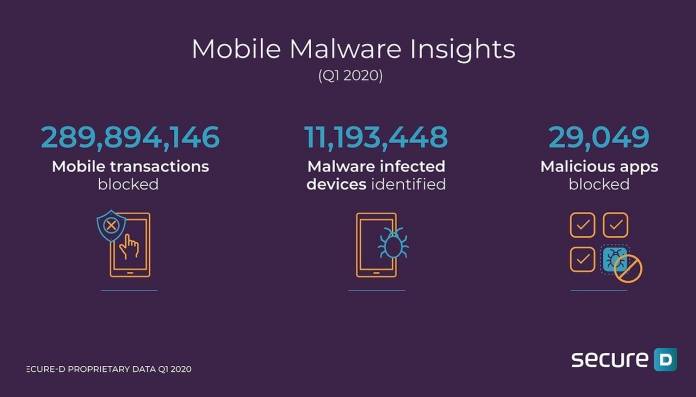
Upstream’s Secure-D has recently shared new its new findings. Compared to June 2019, the number of malware detected has doubled to 29,000. That’s the number of malicious apps for Android discovered on the Google Play Store and other third-party app stores. This means security has not improved from last year or more have worked to make things worse. Data gathered were from 31 mobile operators in some 20 countries across the world. Numbers were gathered since the start of the year.
Looking at the number of fraudulent mobile transactions, there was an increase to 55% also in Q1 2020. The number of malicious apps climbing is somewhat disturbing. According to the report, most of the apps where found on the Google Play Store. Technically, they should have passed security checks. They probably did but something happened along the way.
Upstream’s Head of Secure-D Geoffrey Cleaves said, “With the majority of the world having shifted indoors, there were some darker forces acting to make a profit from the lockdown situation. At Secure-D, we’ve seen a sharp increase in bad actors publishing “leisure” apps on the Google Play Store, which trick users into subscribing for premium services.”
Most of these malicious apps are said to be considered as leisure apps like news & magazines, social, games, and video players & editors. These are apps that people use to pass time. It’s understandable some of these categories have been targeted because most people are at home due to lockdown in most countries.
Android phones are targeted as well because they are easier to attack. One way is to use people’s credit or prepaid credit to avail of different services. One of the most popular yet troublesome app discovered was the video downloader app called Snaptube with 40 million downloads. Interestingly, this app was already flagged last year with 70 million fake transactions.
Upstream has been helpful with detecting malware, as well as, blocking fraudulent transactions. Over 326 million mobile transactions were processed with 290 million flagged as fraudulent. Top three countries were Thailand, Brazil, and Indonesia. Infected devices reached 11.2 million from the 10.5 million last year.









